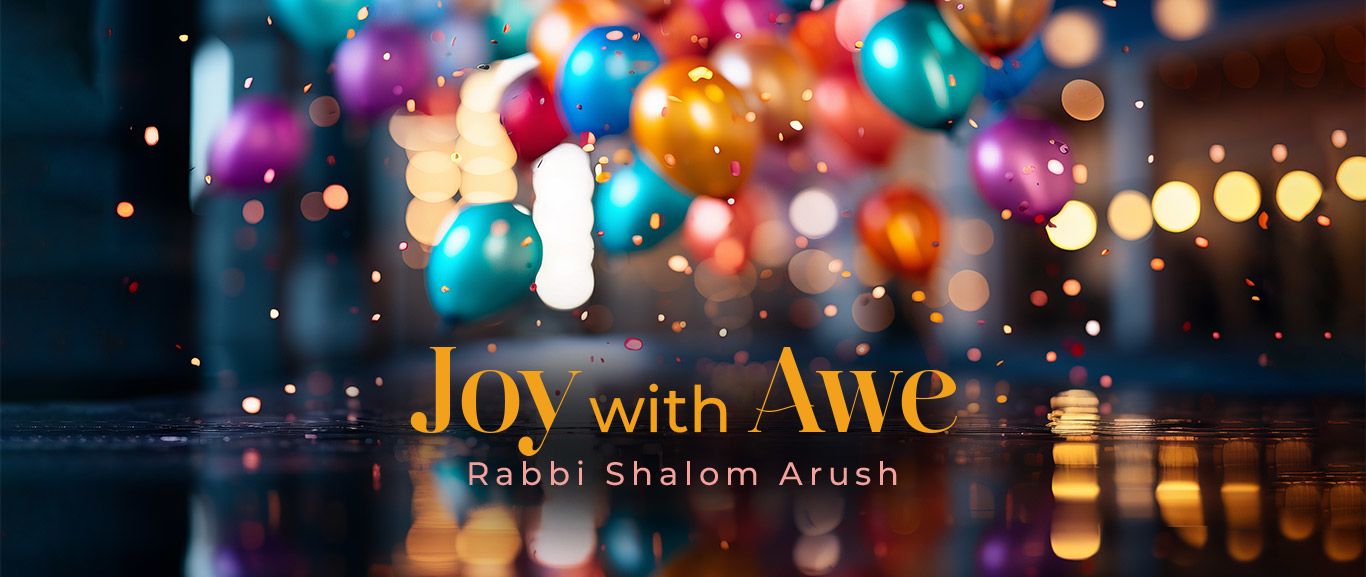
Joy with Awe
The amazing succession of events that led up to our national salvation from certain calamity on Purim all took place within the realm of natural law...

Rabbi Nachman of Breslev teaches (Likutei Moharan II:74) that “all beginnings” stem from Purim. In other words, the way a person celebrates Purim sets the tone for the entire upcoming year. How? People erroneously think that Purim is a day for drunkenness and dropping all barriers. The exact opposite is true. Our drinking wine – and wine only, not whiskey or other alcoholic beverages – is for the purpose of rectifying 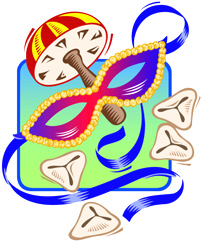 personal holiness and expanding our mental vistas in Torah. In other words, each glass of wine should bring us to a higher state of holiness and spiritual awareness. If it doesn’t, then it’s a crime to be drinking.
personal holiness and expanding our mental vistas in Torah. In other words, each glass of wine should bring us to a higher state of holiness and spiritual awareness. If it doesn’t, then it’s a crime to be drinking.
The Megillah tells us (Esther 10:3) that Mordechai received the backing and affection of “most of his brothers,” namely, the majority of the Jewish people. Mordechai was the tzaddik of his generation, and a lofty tzaddik by any generation’s standards. Even so, many people didn’t understand him. He wasn’t a politician per se – he accomplished things by way of his emuna and his tremendous efforts in prayer. If the Jewish people would have nullified themselves to Mordechai, the final Redemption would have taken place back then in his time.
Purim juxtaposes Mordechai with Haman. Take your pick: you can choose between the emuna, prayers, and personal holiness of Mordechai and the greed, arrogance, and decadence of Haman. Haman, the great grandson of Amalek, is the manifestation of what Rebbe Nachman refers to as klipat Haman-Amalek, the destructive impure spiritual force of Haman and Amalek that leads to every breach in personal holiness and to heresy, the opposite of emuna. In fact, the struggle between the holy force of Mordechai and klipat Haman-Amalek is the war between emuna and heresy, between holiness and debauchery that takes place in every generation.
Still, you may be asking how Purim is a preparation for Passover and the entire coming year. On Purim, we begin our preparations for Passover. Spiritual preparations must precede the physical preparations. In other words, we must remove the chametz from our hearts as well as from our homes. Klipat Haman-Amalek and its accompanying arrogance, heresy, and unholiness is the worst type of chametz there is. No matter how a person scrubs the floors, if he doesn’t clean the spiritual chametz from his heart, you can believe that he’ll have actual material chametz in his domain.
The sublime illumination of Purim are the lights of the mitzvot between man and fellow man. On Purim, no extended palm gets turned away empty. We give gifts to the poor. We give mishloach manot, gifts to each other. These mitzvot are all intended to enhance Ahavat Yisrael, the love among the Jewish people for each other.
Purim is also a special day of teshuva, a miniature Yom Kippur. Yom Kippurim, the name of Yom Kippur in Hebrew, means “A day like Purim.” Just as teshuva, prayer, and charity invoke Divine compassion and atonement on Yom Kippur, they act the same way here on Purim. Yet, Purim is more difficult than Yom Kippur. It’s easy to do teshuva when you’re fasting. It’s a lot more challenging to do teshuva when your table is laden with delicacies and when you’re drinking wine. In that respect, we should take advantage of the Fast of Esther to do complete teshuva, just like on Yom Kippur, so we can enter Purim day with pure and unblemished souls.
The Megillah of Esther is neither a history book nor a folk tale; the Holy Zohar curses anyone who looks at Torah this way. The Megillah is a revelation of Hashem’s monarchy. Megillah in fact comes from the Hebrew word megillah, which means to reveal. The Megillah reveals that there is no one other than Hashem. Hashem alone runs the world. The Megillah also reveals that you’re not alone; you are an integral part of the Jewish people, just as Esther commands Mordechai (Esther 4:16), “Go bring together all the Jews.”
The miracles of Purim are much loftier than the miracles of Pesach. The tens plagues and the splitting of the Red Sea all defied nature. Yet, the amazing succession of events that led up to our national salvation from certain calamity all took place within the realm of natural law. Today’s generation might say, “Why should Hashem split the Red Sea for me?” It’s hard for a soldier or a college student to personally relate to the miracles of Passover. Yet, Purim is a holiday of spiritual arousing since we can all relate to the miracles of Purim. We’ve seen the destruction of Hamans in this generation too; just remember how Saddam Hussein spread fear in Jewish hearts with his scud missile attacks on Israel, and how he was caught like a rat in a tunnel and subsequently executed, just like Haman. Both fell from the status of world leaders – tyrants, albeit – to miserable prisoners on death row.
When we listen to the reading of the Megillah, we must listen carefully to the underlying miracles and salvations. We must pay attention that everything in the world is Hashem. No enemy can touch a hair on a Jewish head without Hashem. In that respect, every Haman is a call to return to Hashem – all the more reason why teshuvah on Purim is the main order of the day. Yet, teshuva on Purim is teshuva from love as opposed to the teshuva on Yom Kippur, which is teshuva from fear. We’re overjoyed with Hashem’s salvations. We’re eating, drinking, and dancing in celebration in and honor of The King, not for the lowly gratification of our bodies. We’re yearning for Him, and we’re using every available moment for Torah and personal prayer. That’s teshuva from love.
I’m sorry to say that most people have no idea what joy on Purim really is and what it means to drink wine on Purim. We drink wine to expand our spiritual awareness. If you have greater insights in Torah with every glass of wine, by all means, keep drinking. But if not, put the bottle down! People become inebriated and then transgress by acting obnoxiously and injuring (verbally or otherwise, Heaven forbid) other people. Do you think that your drinking is a mitzvah if you’ve made another Jew sad or caused him damage? There’s no such thing as doing a mitzvah by way of transgressing. A person who becomes aggressive or violent shouldn’t touch a drop of wine on Purim. Not only that – Rebbe Nachman warned sternly against making fun of other people; Purim is no exception.
If you laugh when another person is harmed or ridiculed, you had better do some serious soul-searching. Enjoying another person’s sorrow is a sign of spiritual degeneration.
Our joy on Purim is not the joy of going crazy. King David said (Psalm 2:11) that we should “Be joyful with trembling,” in other words, we should rejoice while maintaining the awe of Hashem on our foreheads. Especially on Purim, we don’t budge from yirat shamayim,the awe of Hashem. Rebbe Natan of Breslev cites the Zohar and tells us that the forbidden fruit of which Adam partook was the fruit of the vine. By drinking wine in holiness, we literally rectify Adam’s sin and bring a spirit of holiness and salvation to the world. Happy Purim!


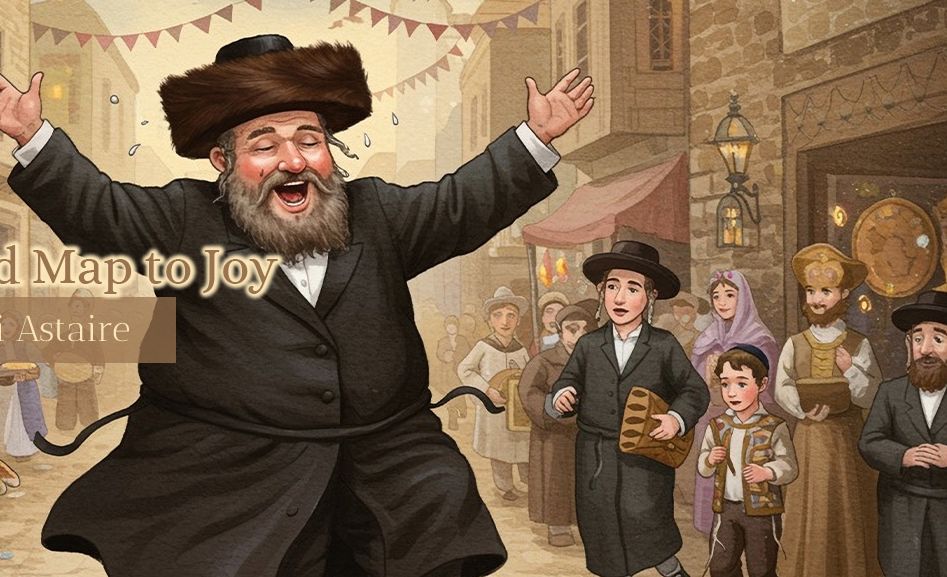
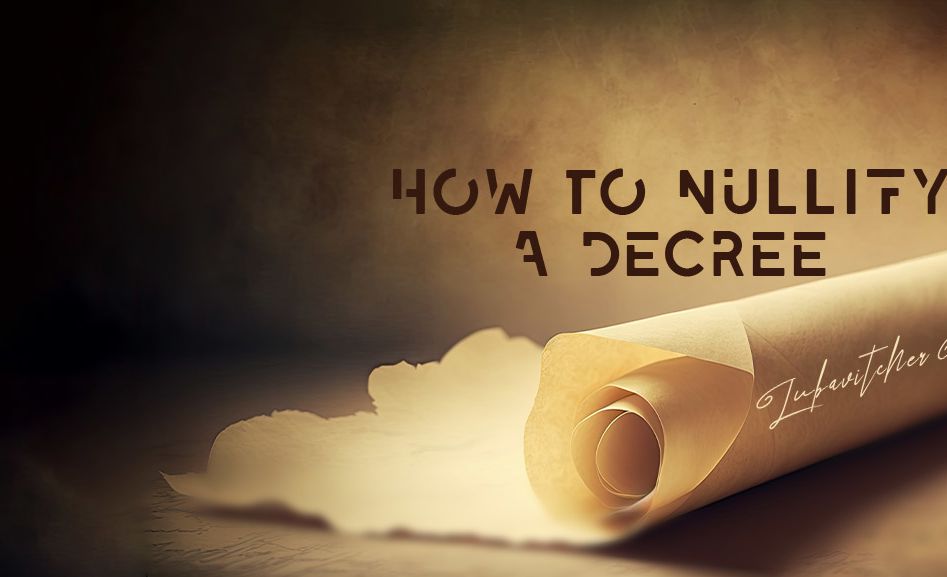
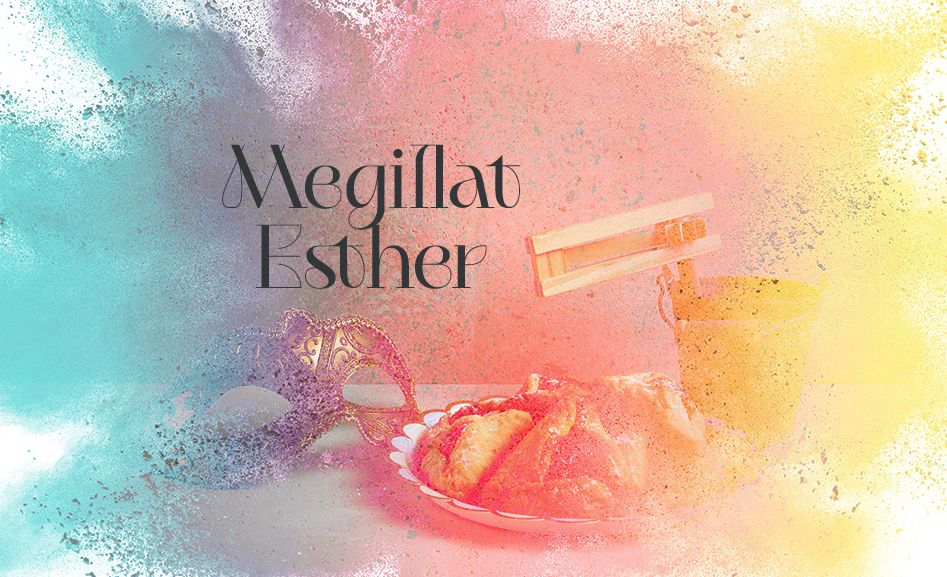

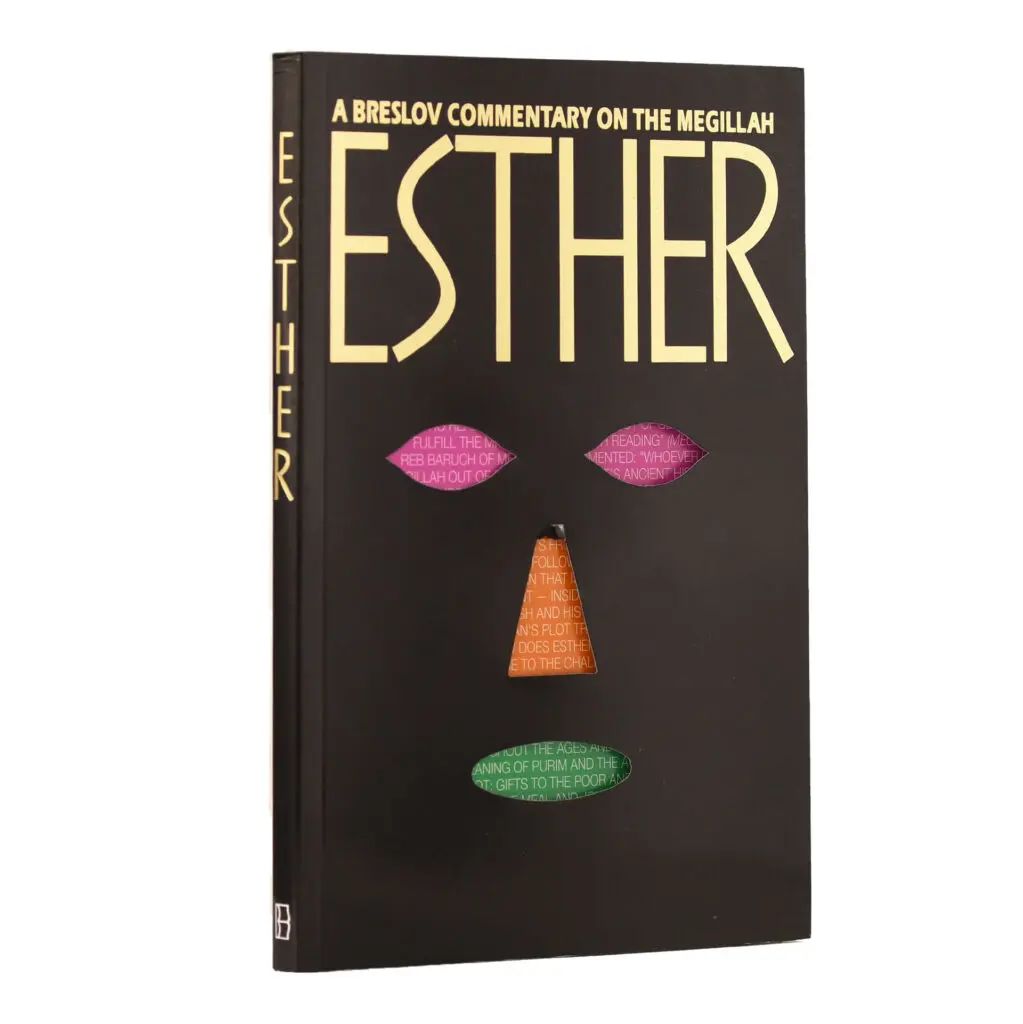
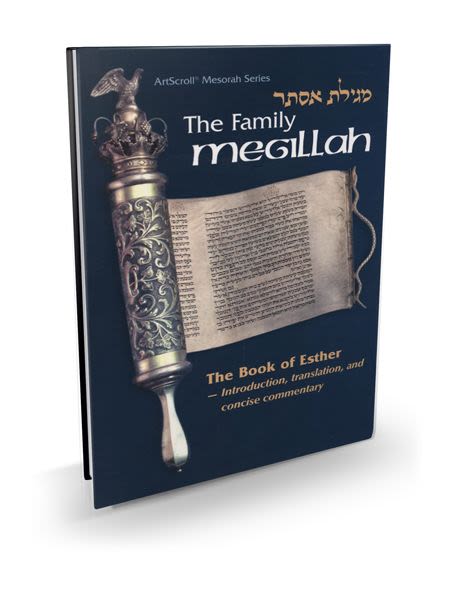
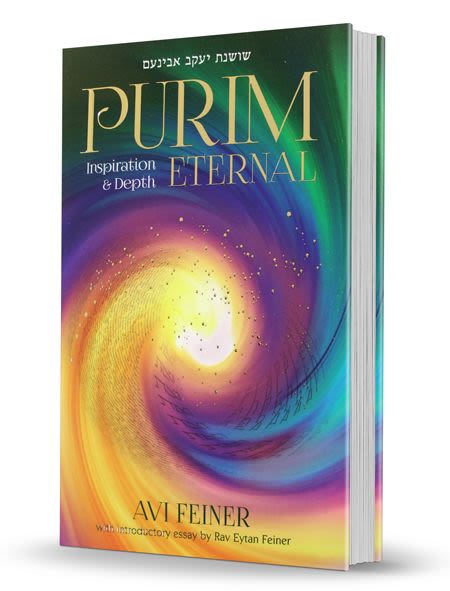
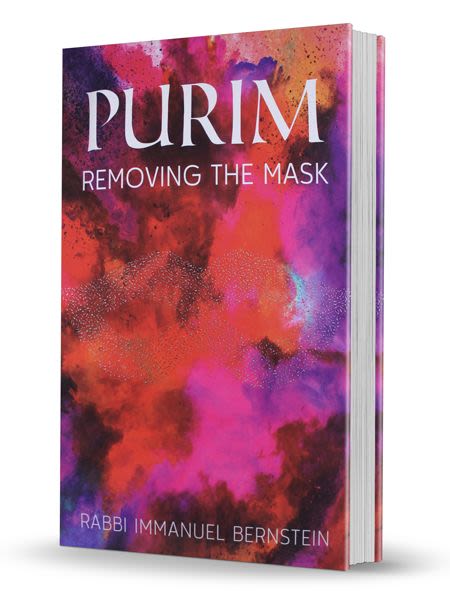
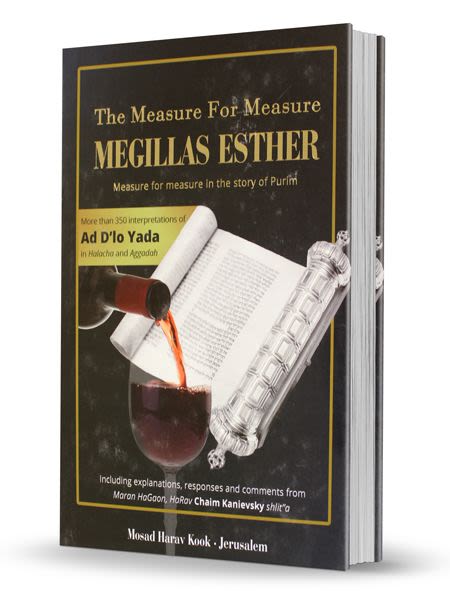
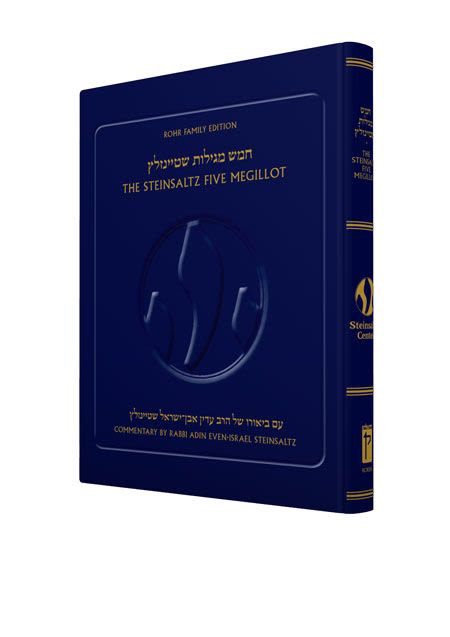
4/25/2021
What does it mean sentence from Rabbi Nachman of Breslov in Sefer Hamedot that if you have enemies you should avoid wine? Does it mean completely to avoid wine, be moderate with it or to avoid alcoholic beverages in general?
Thanks Sincerely, Martin